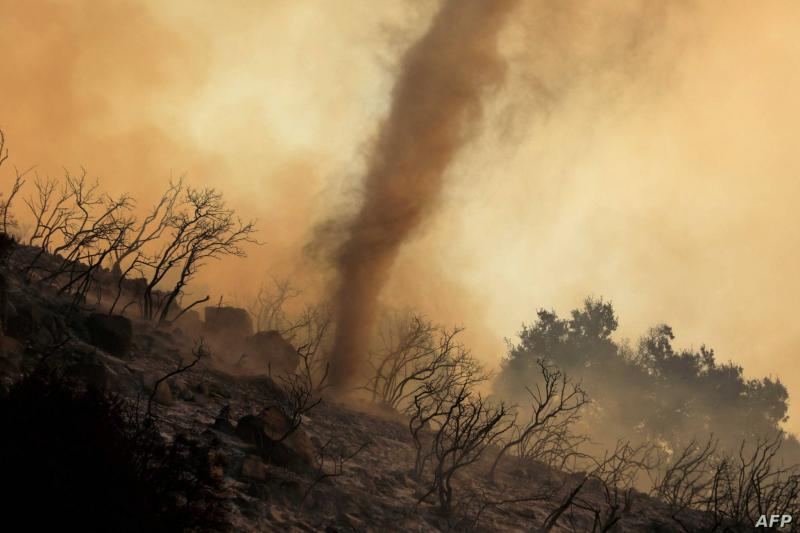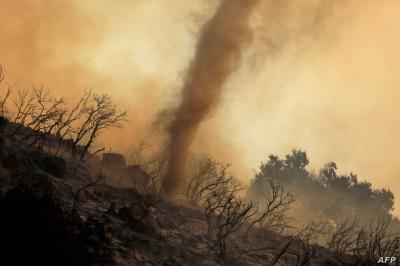Under the title "Red Alert for Humanity: Temperatures Will Continue to Rise and Consequences are Irreversible," Al-Hurra reported that as images of floods and wildfires dominate headlines worldwide, UN climate experts released their long-awaited new forecasts on Monday, just three months before the critical COP26 conference for the future of humanity. The UN climate experts, in their report—the first of its kind in seven years—stated that some consequences of global warming, including melting ice and rising sea levels, will remain "irreversible for centuries or thousands of years."
This report follows two weeks of closed and virtual meetings. Last Friday, 195 member countries of the Intergovernmental Panel on Climate Change (IPCC) agreed on this comprehensive assessment, which was negotiated for the "summary that will be presented to decision-makers." Regardless of future greenhouse gas emission rates, ocean levels will continue to rise "for centuries and even thousands of years," particularly due to the accelerating pace of ice sheet melting, according to the report, which estimates that sea levels could rise by one meter by 2100.
The UN report predicted that global warming would reach 1.5 degrees Celsius compared to pre-industrial levels by around 2030, ten years sooner than the last estimates made three years ago. Temperatures will continue to rise beyond this threshold—one of the main tenets of the Paris Agreement—by 2050, even if the world significantly reduces greenhouse gas emissions.
The report held humanity responsible for the phenomenon of global warming, noting that human activities have caused temperatures to rise by approximately 1.1 degrees since the 19th century. Valérie Masson-Delmotte, co-chair of the expert group, stated, "It has been clear for decades that the Earth's climate system is changing and the role of human influence on the climate system is indisputable." In response, UN Secretary-General António Guterres stated that the report announces the end of fossil fuels that "destroy the planet." He added that the report serves as a "red alert for humanity. The warning bells are deafening: greenhouse gas emissions from fossil fuels and deforestation are suffocating our planet."
Recent weeks have seen extreme weather linked to climate change wreak havoc around the globe, with heavy rains causing floods in Northern Europe, and wildfires burning in Southern Europe. In Yakutsk, Northern Russia—dubbed the coldest inhabited city on Earth due to its frigid winter temperatures—residents were urged to stay indoors while volunteers and firefighters faced temperatures exceeding 100 degrees Fahrenheit, according to the Wall Street Journal.
In Italy, it is estimated that the number of wildfires has tripled this year compared to the annual summer average. In Greece, wildfires led to evacuations around the archaeological site of the original Olympic Games. In Turkey, scorching temperatures, expected to rise by 8 degrees Celsius above seasonal averages in some areas, sparked a wave of fires across dozens of provinces, burning 100,000 hectares of land and displacing thousands. Additionally, last week, a heatwave in Greenland, located in the Arctic, resulted in the largest melting event in the area thus far in the 2021 season, with researchers estimating that enough ice melted to cover all of Florida with two inches of water.




